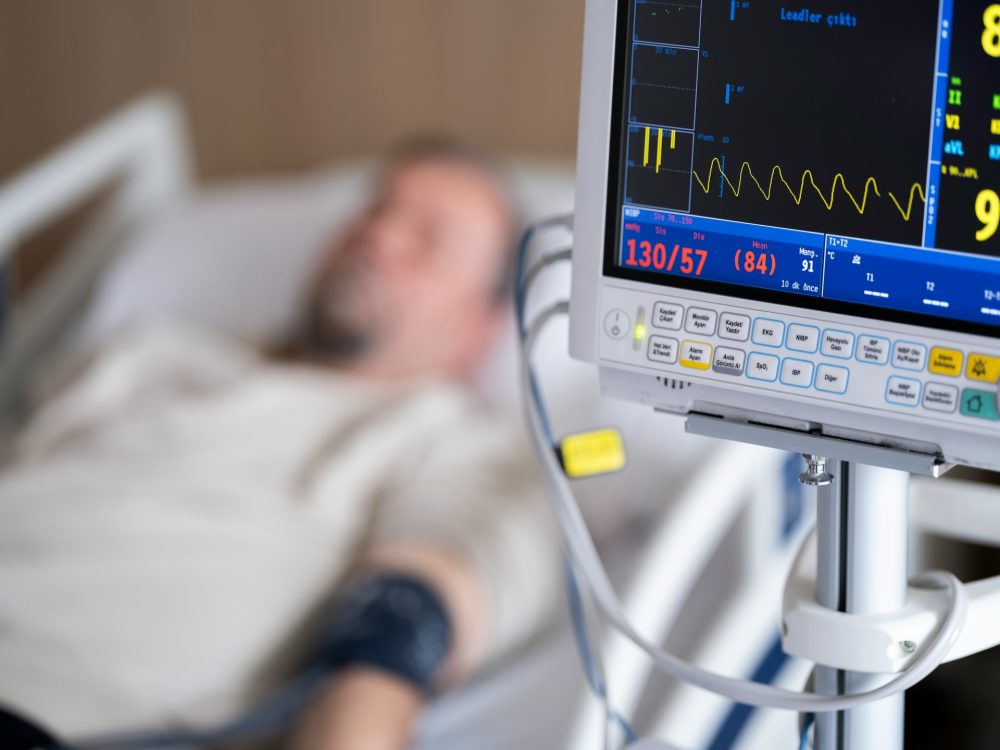Biotech
AI Predicts Heart Attack Risk a Decade in Advance Through Multimodal Diagnostics
AI-driven multimodal diagnostics can predict heart attack risk up to 10 years before symptoms by integrating medical imaging, lab tests, and health records to assess biological age and plaque vulnerability. This one-hour, non-invasive scan enables early prevention. The 2026 Longevity World Forum in Madrid will highlight such breakthroughs in preventive and longevity medicine.

A study highlights how multimodal diagnostics powered by artificial intelligence ( AI ) can detect the risk of heart attack up to 10 years before the onset of symptoms.
This identification is achieved through the integration of multiple data modalities (medical images, laboratory tests, and electronic health records), which allow for the estimation of biological age, rate of aging, and risk of adverse events, and the prioritization of preventive interventions before clinical disease manifests.
New AI-powered scans integrate medical data to detect early heart disease signs and enable preventive care, a key focus of the 2026 Longevity World Forum in Madrid
The procedure to detect early signs of a potential future heart attack is performed on an outpatient basis, lasting less than an hour, using an AI-powered scanner. This scanner accurately identifies the presence, quantity, and type of plaque in the coronary arteries, including soft plaque—a less dense and more vulnerable type of arterial deposit that is more likely to rupture and cause blockages—which goes undetected by other imaging tests. As a result, this type of diagnosis allows for early intervention and preventative measures, reducing the likelihood of life-threatening events.
AI helps identify the risk of having a heart attack up to 10 years before the onset of symptoms
This type of AI-powered diagnostics can also be applied to other neurodegenerative diseases or cancers. In pathologies such as lung cancer, studies like the one conducted by researchers at Seoul National University demonstrated the usefulness of AI-powered detection. The goal was to detect malignant nodules without increasing false positives. In a group of 10,476 participants, artificial intelligence improved detection by 0.59% (31/5238) compared to 0.25% (13/5238).
The main advances in preventive medicine for serious diseases such as cancer or neurodegenerative pathologies, as well as the early detection of heart attacks using AI, will be some of the main topics of the fourth edition of the Longevity World Forum , to be held in Madrid from February 18 to 20, 2026. A hybrid world congress, both in-person and online, which will bring together leading scientists, experts and technologists over three days to discuss longevity and healthy aging.
__
(Featured image by engin akyurt via Unsplash)
DISCLAIMER: This article was written by a third party contributor and does not reflect the opinion of Born2Invest, its management, staff or its associates. Please review our disclaimer for more information.
This article may include forward-looking statements. These forward-looking statements generally are identified by the words “believe,” “project,” “estimate,” “become,” “plan,” “will,” and similar expressions. These forward-looking statements involve known and unknown risks as well as uncertainties, including those discussed in the following cautionary statements and elsewhere in this article and on this site. Although the Company may believe that its expectations are based on reasonable assumptions, the actual results that the Company may achieve may differ materially from any forward-looking statements, which reflect the opinions of the management of the Company only as of the date hereof. Additionally, please make sure to read these important disclosures.
First published in iSanidad. A third-party contributor translated and adapted the article from the original. In case of discrepancy, the original will prevail.
Although we made reasonable efforts to provide accurate translations, some parts may be incorrect. Born2Invest assumes no responsibility for errors, omissions or ambiguities in the translations provided on this website. Any person or entity relying on translated content does so at their own risk. Born2Invest is not responsible for losses caused by such reliance on the accuracy or reliability of translated information. If you wish to report an error or inaccuracy in the translation, we encourage you to contact us.

-

 Impact Investing2 weeks ago
Impact Investing2 weeks agoIntesa Sanpaolo’s 2026–2029 Growth and ESG Strategy
-

 Business2 days ago
Business2 days agoTopRanked.io Weekly Affiliate Digest: What’s Hot in Affiliate Marketing [Health Trader Affiliate Program Review]
-

 Business1 week ago
Business1 week agoTopRanked.io Weekly Affiliate Digest: What’s Hot in Affiliate Marketing [Hosting.com Affiliates]
-

 Crypto4 days ago
Crypto4 days agoEthereum Pushes AI Integration With ERC-8004 and Vision for Autonomous Agents




















